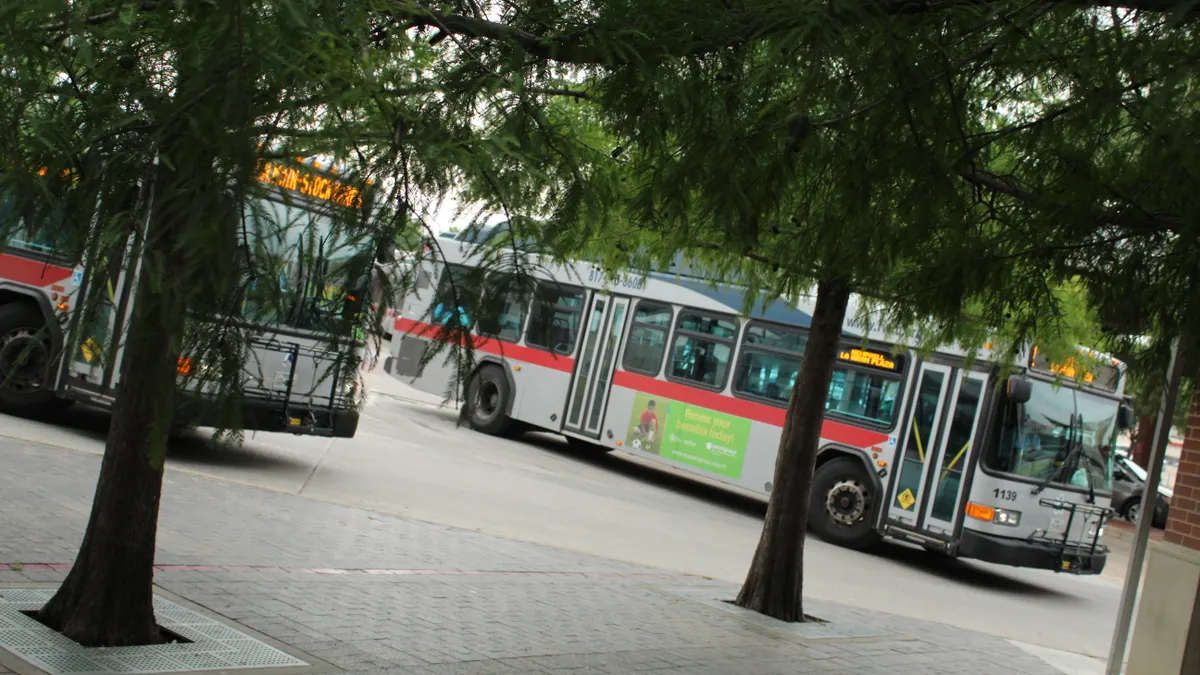Even as some shared-mobility systems have struggled financially, proponents view the concept of car-share, bike-share, shared scooters and microtransit as essential to reducing greenhouse gas emissions from transportation and providing more equitable options. “We need to secure a more just and sustainable future with abundant public transportation options and more shared mobility,” said Stephanie Lotshaw, executive director at advocacy organization TransitCenter, in a press release. TransitCenter is a partner and researcher in the SUMC’s action agenda.
The Shared-Use Mobility Center published its first annual report detailing how more than 70 partner cities, transportation providers and private-sector companies have worked since last year toward their collective 2030 goal to make “shared mobility a more attractive option than personal car ownership,” the report states.
The report follows last year’s creation of an “action agenda” by the participants. “Action and accountability are the cornerstones for the agenda to incite tangible and meaningful change,” the SUMC said in a press release.
The members established four working groups centered around climate, equity, funding and technology. Each group assessed members’ actions during their first year. The climate group reported that 77% of survey respondents have ongoing projects to address climate change, and more than half have publicly expressed their concerns through press releases and other media.
The Crawford Area Transportation Authority, which serves two rural counties in northwest Pennsylvania, began a bike-share program in one small city in 2021 and expanded it to more locations last year, according to the agency’s 2022 climate action plan. It also plans to achieve an 80% reduction in greenhouse gas emissions by 2030.
The equity group reported that three-quarters of its members who responded to the survey have established projects that emphasize racial or economic equity issues, and 83% are focused on improving access to transportation services. The city of Arlington, Texas, created a pilot program to provide free and reduced-fare on-demand shared rides for those in need and is working with local nonprofits to get the word out.
The funding group is looking to identify new revenue sources for public transit and shared-mobility systems, including public-private partnerships, philanthropies, cap-and-trade programs and employer-based funding.
Meanwhile, the technology group wants to help federal agencies develop more open, standardized data solutions that will make it easier to provide riders with more information on transportation choices and allow for fare payments across modes.
While growing sales of electric vehicles and the shift toward electric buses grab headlines, “electrification by itself won’t address the much harder systemic problems of inequality, safety, and affordability that are endemic to our car-centric mobility systems,” said Shared-Use Mobility Center CEO Benjamin de la Peña in a press release. “We need more shared mobility, more public transportation, more active choices, and safe sidewalks if we are to get to a just transition.”
Correction: A previous version of this article erred in identifying the location of an Arlington shared-ride pilot program. The program is in Arlington, Texas.












